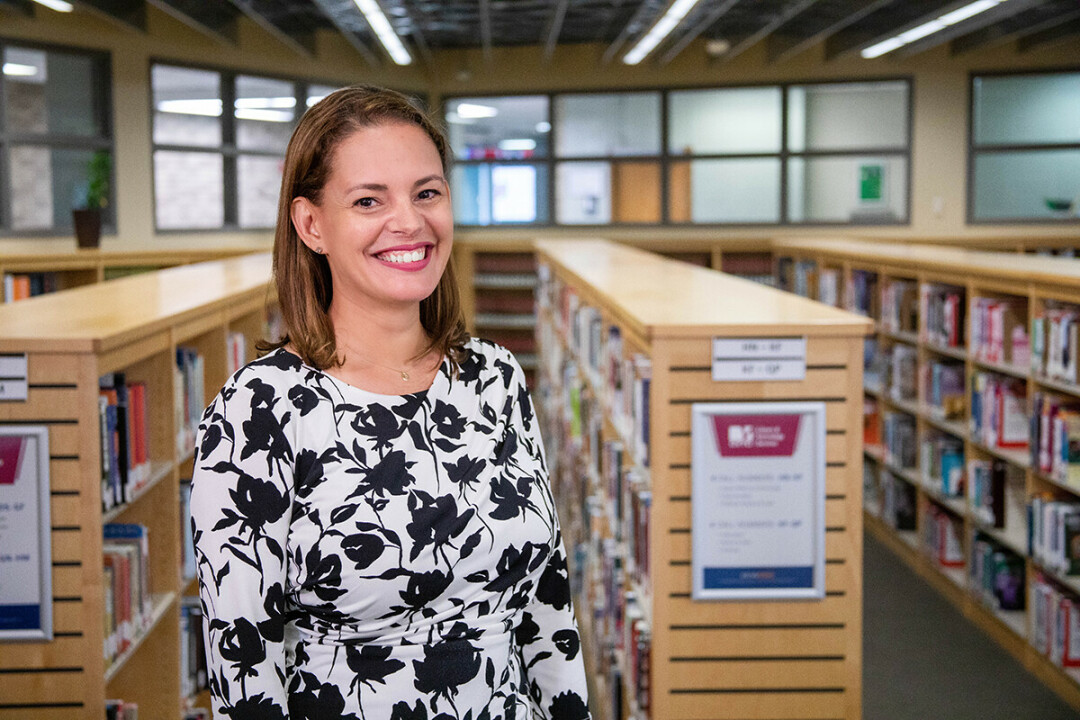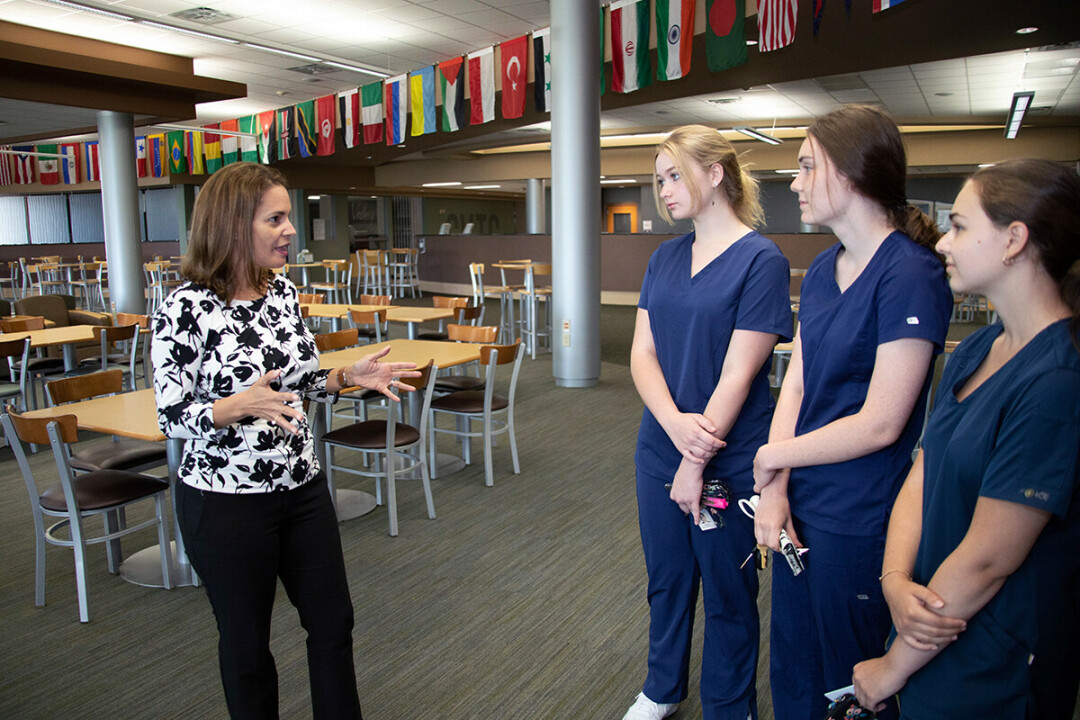From Immigrant to President: The Path of CVTC’s New Leader
Sunem Beaton-Garcia’s childhood shaped how she fosters a culture of learning
Alyssa Van Duyse / Chippewa Valley Technical College

When Sunem Beaton-Garcia took over as president of Chippewa Valley Technical College on July 1, she broke the mold, the glass ceiling, and new ground as she walked through the door.
It’s not difficult to see that the 46-year-old Latina woman with a doctorate in education is different from her predecessors.
As much as Beaton-Garcia’s background may set her apart from those who led before her, her passion for lifelong learning, community collaboration, and helping people achieve their educational goals is on par with the foundation former presidents have set.
“I am representative of our students,” she said. “I’m proud to look different, but this role is based on hard work, dedication, and track record. It has no bearing on what we look like or where we come from. This institution has been at the forefront of that change.”
PRESIDENTIAL JOURNEY
Beaton-Garcia knows struggle. Her past gives her a perspective that she believes helps her guide students and meet them where they are to foster lifelong learning.
At the age of 5, Beaton-Garcia’s parents were forced to leave their homeland of Cuba during the Mariel Boatlift – a mass emigration of Cubans to the United States in 1980. Her dad was a political prisoner asked to leave.
“We came at night in our pajamas. We didn’t get a chance to say goodbye to anyone,” she said. “We were in a new country. It was what was meant for us in our journey.”
After a harrowing boat trip, they found themselves in south Florida, recognized for its significant Latino population. Still, Beaton-Garcia’s mother knew staying in that area would not do them any favors.
“She realized people weren’t learning the language,” Beaton-Garcia said of her then 25-year-old mother. “She wanted us to learn the language and acclimate to American society, so we moved to central Florida. It was a pretty gutsy move on my parents’ part.”
Gutsy and difficult. Beaton-Garcia remembers the struggle.
She was a number – a statistic. She couldn’t speak the language. That start alone could have set the tone for the rest of her life. But determination stepped in. Her grit shined.
“I am representative of our students. I’m proud to look different, but this role is based on hard work, dedication, and track record. It has no bearing on what we look like or where we come from. This institution has been at the forefront of that change.” – Sunem Beaton-Garcia, CVTC president

EDUCATIONAL OPPORTUNITIES
Then came a bright spot. Beaton-Garcia remembers her kindergarten teacher doing small things that made a big difference.
“I remember not knowing the language. Fire drills were scary. I just came from a Communist country, and these are scary sounds,” she said. “My kindergarten teacher didn’t understand my language, but she understood me. She understood I belonged.”
Experiences like that gave her a unique perspective on the need for academic support. She said not all students are coming from the same place emotionally, economically, and educationally for a variety of reasons.
“I understand that where you come from, where you were born, or the ZIP Code you live in is not indicative of your success,” she said. “We all have unlimited potential, but it looks different from person to person. We have to have a more personalized view to help students get there. That’s equity work.”
Her own educational journey, she would say, is typical of what many people experience. She wasn’t a 4.0 student. She didn’t know what she wanted to be when she grew up. She didn’t know what her path would be, and as a result, she spent unnecessary money and time without direction until she sought out career services at a two-year community college.
“You can’t be a nurse if you pass out when you see blood,” she said with a laugh. “I had to change my path.”
It wasn’t until a school advisor turned her down the road of education that her passion was ignited.
“I offer my story to students to understand we want them to explore in a structured way and graduate on time,” she said. “Sometimes students think things were so easy for others. I want them to know I see you. I get you. I’ve been there.”

PATH TO THE CHIPPEWA VALLEY
Beaton-Garcia’s career includes 12 years of instructional and administrative experience in higher education. Her accomplishments are impressive and include a culture of collaboration, transformational academic programs, and innovation in student support, community engagement, and stewardship.
Most recently, she served as north campus president and vice provost for academic services at Broward College in Fort Lauderdale, Florida. She was hired in May as CVTC’s 11th president, replacing Bruce Barker, who retired July 1 after leading the college for 13 years.
As much as Beaton-Garcia taps into her past experiences to meet students where they are, she also looks to the future. She will continue to grow programs and certifications, and foster relationships with businesses throughout western Wisconsin to help strengthen our communities.
“When they’re successful, we’re successful,” she said. “We’re all part of the same community. We’re providing the training. We’re benefitting each other. We’re just a different part of the equation.”
And for students questioning their path, her message is powerful.
“I am you. If I can be here, so can you,” Beaton-Garcia said. “The same girl that came in a boat is here doing this. You have to put in the work, but we are here. We will help you do what you need to do to get there.”

